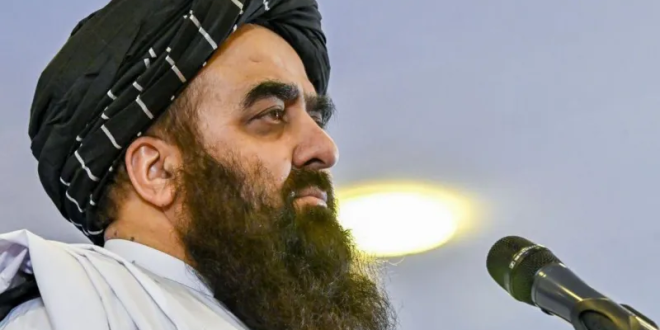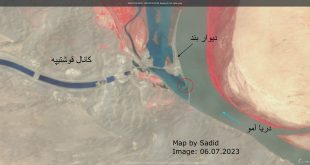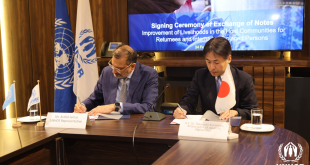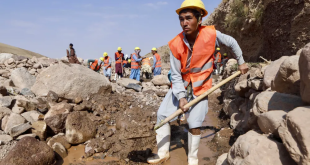KABUL – Russia has formally recognised the Taliban as the legitimate government of Afghanistan, becoming the first country to do so nearly four years after the group seized power in Kabul. The announcement followed a meeting between Russia’s ambassador and Afghan Foreign Minister Amir Khan Muttaqi on Thursday.
Muttaqi welcomed the decision as a “courageous” step and a milestone that he hoped would encourage other nations to establish formal ties with the Taliban. He said it marked a new phase of “positive relations, mutual respect, and constructive engagement.”
The Russian foreign ministry said it saw potential for expanded cooperation in energy, transportation, agriculture, and infrastructure, and pledged to assist Afghanistan in combating terrorism and drug trafficking.
The move has sparked strong condemnation from Afghan opposition figures and human rights groups. Former parliamentarian Fawzia Koofi warned that recognising the Taliban would legitimise impunity and could pose a threat to global security. “Any move by any country to normalise relations with the Taliban will not bring peace—it will legitimise impunity,” she said.
The Afghan Women’s Political Participation Network also condemned the decision, calling it an endorsement of a regime that is “anti-women” and “actively dismantling basic civil rights.” The group accused Moscow of ignoring the Taliban’s crackdown on freedoms and warned that Russia’s move represents a continuation of its past destructive policies in Afghanistan.
Since retaking power in August 2021, the Taliban has barred girls over the age of 12 from attending school and imposed sweeping restrictions on women’s employment, mobility, and public participation. The United Nations has labelled these policies as “gender apartheid” and continues to raise concerns over public floggings and the targeting of former government officials.
Despite widespread international condemnation, Russia maintained its embassy in Kabul after the Taliban’s return and signed an economic agreement with the group in 2022 to supply oil, gas, and wheat. In April 2025, Moscow removed the Taliban from its official list of terrorist organisations, further clearing the way for formal diplomatic recognition.
President Vladimir Putin referred to the Taliban as an “ally” in fighting terrorism in 2024, and Taliban officials have been visiting Moscow for talks since as early as 2018.
Russia’s recognition comes despite a bitter history of Soviet involvement in Afghanistan, including the 1979 invasion that led to a nine-year war and the deaths of more than 15,000 Soviet troops. Critics argue the Kremlin’s current policy mirrors its past interventions, now repackaged as diplomacy.
Dr Rangin Dadfar Spanta, a former Afghan national security adviser, called the decision “regrettable” and warned that in the absence of resistance, other countries might follow Russia’s lead.
While countries such as China, Pakistan, the United Arab Emirates, and Uzbekistan have appointed ambassadors to Kabul, none have granted full diplomatic recognition to the Taliban. The international community has largely withheld recognition, citing the group’s human rights abuses and failure to establish an inclusive government.
Strict international sanctions remain in place, including the freezing of roughly $9 billion in Afghan central bank assets. Human rights advocates and Afghan civil society fear Russia’s move may further entrench Taliban rule and erode efforts to promote democracy, gender equality, and basic freedoms in Afghanistan.
Ask ChatGPT
 Afghanistan Times
Afghanistan Times




